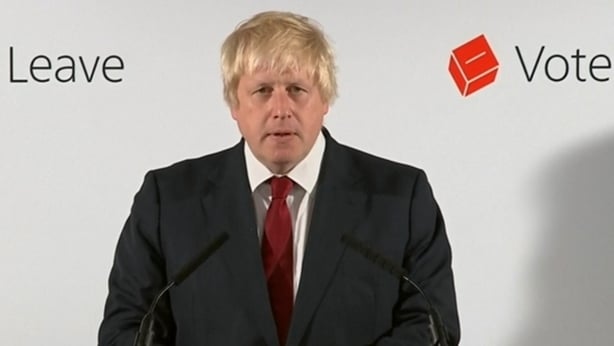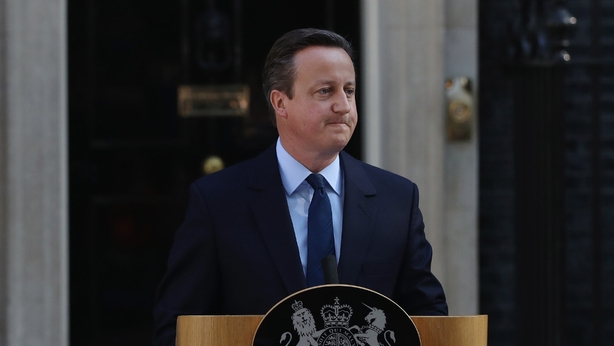Britain's opposition Labour leader Jeremy Corbyn said he regretted the resignations of several members of his senior team of lawmakers in the wake of Britain's vote to leave the European Union but he did not plan to resign.
Twelve members of Mr Corbyn's team or "shadow cabinet" withdrew their support for him today, with many criticising his contribution to the referendum campaign and saying they doubted his ability to lead the party to victory in the next election.
"I regret there have been resignations today from my shadow cabinet. But I am not going to betray the trust of those who voted for me, or the millions of supporters across the country who need Labour to represent them," he said in a statement.
"Those who want to change Labour's leadership will have to stand in a democratic election, in which I will be a candidate," added Mr Corbyn.
The British Labour Party's influential deputy leader Tom Watson said he is to hold emergency talks with Mr Corbyn tomorrow to "discuss the way forward" after 11 members of the shadow cabinet announced they were resigning.
The revolt of the shadow cabinet was triggered by the overnight sacking of shadow foreign secretary Hilary Benn following reports that he was orchestrating moves to mount a coup against Mr Corbyn.
With a very heavy heart I have notified Jeremy Corbyn that I have resigned from the Shadow Cabinet. Letter to follow.
— Karl Turner MP (@KarlTurnerMP) June 26, 2016
First to go was shadow health secretary Heidi Alexander followed by the shadow minister Gloria De Piero.
They were followed by shadow education secretary Lucy Powell, shadow environment secretary Kerry McCarthy, shadow transport secretary Lilian Greenwood, shadow Scottish secretary Ian Murray, shadow Northern Ireland secretary Vernon Coaker, shadow justice secretary Lord Falconer, shadow Treasury chief secretary Seema Malhotra, shadow attorney general Karl Turner and shadow Commons leader Chris Bryant.
Mr Benn told BBC One's The Andrew Marr Show: "He (Mr Corbyn) is a good and decent man but he is not a leader and that is the problem."
Shadow chancellor John McDonnell - one of Mr Corbyn's closest allies - insisted that he had no intention of quitting.
In a thinly veiled warning to rebels, he said that Mr Corbyn still had the backing of the grassroots activists who swept him to the leadership last year and who will decide the outcome of any new contest.
"When people go back to their constituencies, the message will be straightforward - be loyal to the principles of the Labour Party," he told BBC Radio 5 Live's Pienaar's Politics.
However Mr Corbyn now faces a vote of no confidence which will be discussed at the weekly meeting of the parliamentary Labour Party at Westminster tomorrow with a secret ballot of MPs expected the following day.
Meanwhile, Britain will continue to have access to the European Union's single market, Boris Johnson said in a newspaper article published this evening.

"There will continue to be free trade, and access to the single market," said the leader of the Leave campaign and favourite to become the country's next prime minister.
Mr Johnson made the comments in a regular column for the Telegraph newspaper, adding that there was "no great rush" for Britain to extricate itself from the EU.
"The economy is in good hands," he added. "Most sensible people can see that Bank of England governor Mark Carney has done a superb job - and now that the referendum is over, he will be able to continue his work without being in the political firing-line."
Conservatives consumed by leadership frenzy
Labour's leadership turmoil comes as the Conservatives are consumed by their own post-referendum leadership frenzy.
Senior Tories are preparing to fight for the PM's job, with a section of the party launching a "Stop Boris" campaign.
Mr Cameron announced he would step down in time for the Conservative conference in October, but is coming under increasing pressure from Brussels to initiate a divorce from Europe.

The political backlash unleashed by Brexit saw pro-Remain Tories scramble to unite behind a candidate strong enough to try to stop Boris Johnson becoming prime minister.
Home Secretary Theresa May is consolidating her position as the main potential "Stop Boris" candidate, as Europe piled pressure on Mr Cameron to go before his stated departure date of October so that tough talks on the Brexit "divorce" deal can begin in earnest.

